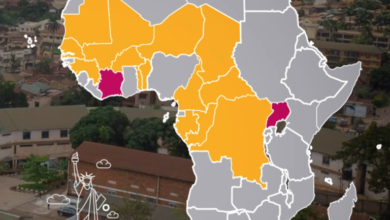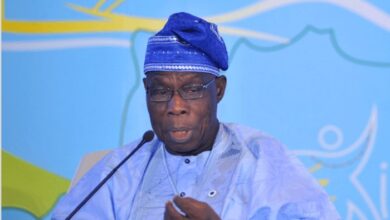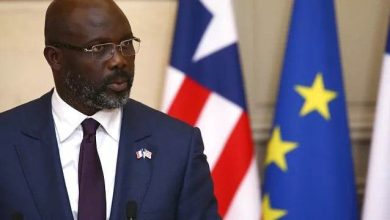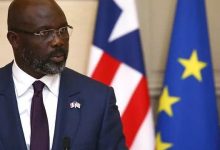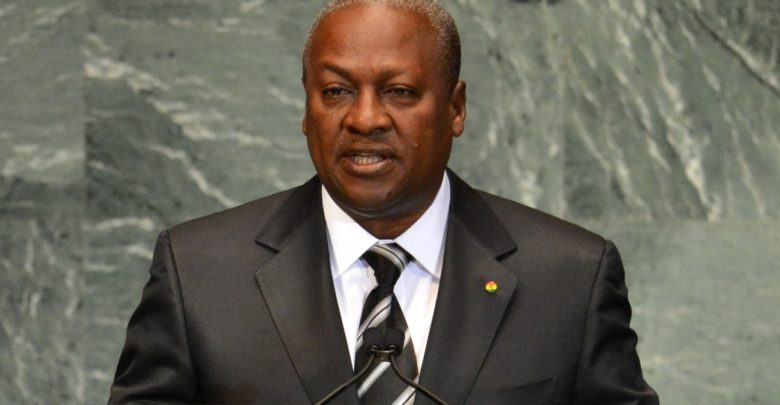
Former President of Ghana, John Dramani Mahama, who is heading the Commonwealth Group of observers for Zimbabwe’s 2018 elections, describes them as one of the most important and “watershed elections” in the history of the nation.
Mahama says Zimbabwe’s elections are testament to the maturity of the country’s democracy following the forced resignation of former President Robert Mugabe.
Mr. Mahama, who lost his country’s last election after one term in office but peacefully conceded, says the elections will also give legitimacy to the winner and a fresh mandate to continue economic and democratic reforms.
Zimbabwe is not a member of the Commonwealth having withdrawn in 2003 after it was suspended for being in breach of the Harare Declaration, which sets out the Commonwealth’s core principles and values.
But Zimbabwean President Emmerson Mnangagwa has written to the Commonwealth expressing his desire to rejoin the group.
In an interview with Blessing Zulu of VOA’s Zimbabwe Service, Mr. Mahama applauded the peaceful nature of the elections.
Blessing Zulu (BZ): Your Excellency, what is your initial assessment of the situation in Harare, ahead of the elections tomorrow?
President John Mahama (Fmr. Pres. Mahama): Well, the situation is peaceful and I guess that the campaigning has gone smoothly. All the political parties have had the opportunity to canvas for votes across the whole country and there have been no no-go areas. I mean they have been able to freely access every parts of the country to campaign. So, it’s been a peaceful atmosphere, and I guess today is quiet – today, there is no campaigning allowed and the election is tomorrow. So, so far, so good.
BZ: The opposition had what they were calling serious concerns about the manner in which the elections were being conducted by the Zimbabwe Electoral Commission. What is your take on that?
Pres. Mahama: Well that is normal. I guess that all parties you know, have concerns, you know the elections I have witnessed, but as much as possible the election commission must carry everybody along, as long as it within the law. That’s why I commented the other time, that it wasn’t unjustified for the MDC to continue to push for electoral reform, as long as it’s within the ambit of the law. They were asking, they were complaining that they have not been involved in the printing of the ballots, and then they also were asking to be able to accompany the ballots as they were distributed, you know. And so, once they didn’t infringe the law, I didn’t think that these demands were unjustified. But, I guess that the Electoral Commission and the authorities concerned took the various decisions that had to be taken and the parties all agreed to go forward with the elections, and so that is a good thing.
BZ: And what is your overall mission in Harare as the Commonwealth?
Pres. Mahama: Well, we are to observe the election and issue a report, based on the various commitments that Zimbabwe has made in terms of its commitment to regional protocols for the elections and the international agreements on elections, and our report, our final report will be presented to the secretary general. We’ll present an interim report after the elections and then a final one will be presented to the secretary general.
BZ: Can this also determine if the Commonwealth will be able to accept or reject Zimbabwe’s bid to become a member again?
Pres. Mahama: That will be a decision of heads of government. Our mandate here is to observe the election and come up with a report as to what happened, and give what our recommendations are. Once we have done and the report is presented to the secretary general, I believe that it might be one of the issues, instruments used to assess Zimbabwe’s readiness to rejoin the Commonwealth, but like I said, that essentially will be a decision of Heads of Government.
BZ: And, how significant is this election for Zimbabwe and Africa, in general?
Pres. Mahama: I think it’s one of the most important elections that Zimbabwe is having historically. It is the election that is going to mark a watershed as to how Zimbabwe’s democracy has matured. I don’t think the events of November last year has been a process of economic and democratic reforms and I believe that this election is going to give legitimacy to whoever, you know, wins, to continue moving Zimbabwe along the path of democratic, economic reform.
BZ: Any initial concerns that you have noted?
Pres. Mahama: We discussed with all the stakeholders, including the civil society organizations, faith based groups and the political parties, and all the concerns that were brought to our attention were passed on to the authorities concerned. And so the (Zimbabwe) Electoral Commission, the Zimbabwe Police service, and all of them, we have engaged with them. And I believe that largely, a lot of those concerns have been addressed. But let me say that the parties have a role to in ensuring the integrity of the poll, because instruments are provided for them to be able to police the poll. For instance, the ballots are going to be counted at the polling station, and so immediately, at the end of voting, the ballot boxes are going to be open right there at the polling station, and the counting will be done, and then the results are going to be counted, posted on the wall of the polling station. I think that this, I mean, to a large degree, creates an opportunity for the political parties to be able do their own tallying of the results from all the polling stations, and at the end of the process be able to compare whether anything untoward has happened, that is if their figures are violently different from the figures of the Electoral Commission. So, I think that there are more safeguards in this election to have a fair and credible election than existed in the past.
BZ: So what will you be doing on voting day, tomorrow?
Pres. Mahama: Tomorrow, early in the morning, we are going to go out, and witness, we call it the opening of the poll, and so there are procedures that must be followed when the poll is opened, and so we are going to make sure that those procedures are followed and that the opening of the poll is done in a transparent and credible manner. And then afterwards we are going to stay at the polling stations, of course going round multiple polling stations to see how the voters queue, whether they are able to have easy access to the polling station, do people get frustrated because the queues are so long, they get tired and decide they won’t vote at all, or people are going to remain in the queues and take their time and vote? Will everyone have the opportunity during the time frame to be able to vote? And we’ll also look at the voting process, how the polling station is laid out, does it make it possible for people to cast their votes secretly, without somebody, you know, watching what you voted for? And then at the end of the poll, we would go to through closing procedures, there are procedures they go through to close the poll. And then we will also stay and witness the counting. Is the counting done is a transparent and fair manner? Are the party agents there? Are they able to inspect every ballot, you know, and agree on rejected ballots, and all that.  So we’ll watch all those processes, and after that, of course, it follows the transmission of the results, how are the results transmitted to the districts and then to the wards and then from the wards to the national tallying center before the results are eventually announced. So it’s a very complicated and laid-out process, and as observers, we are supposed to witness the process from beginning to end.
So we’ll watch all those processes, and after that, of course, it follows the transmission of the results, how are the results transmitted to the districts and then to the wards and then from the wards to the national tallying center before the results are eventually announced. So it’s a very complicated and laid-out process, and as observers, we are supposed to witness the process from beginning to end.
By Blessing Zulu, VOA

